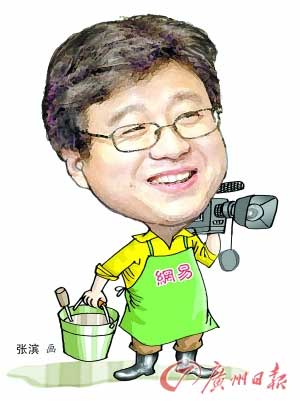(Ecns.cn)--The "agricultural department" of the Chinese Internet portal Netease has announced its design plan for the company's first pig farm. According to Mao Shan, general manager of the department, there will be over 30 buildings constructed at the farm.
Since the farm was announced by Ding Lei, CEO of Netease, in February 2009, the topic has received wide attention from people inside and outside the IT circle. Last March, after a period of silence about the farm, Netease confirmed the farm's location in Anji County, Huzhou City, Zhejiang Province.
The 30 constructions will include an administrative area, feed rooms and hog houses. The hog houses will be built on stilts to reduce damage to the plants on the ground, according to Mao.
Netease will follow the rules of international biological epidemic prevention to divide areas in the hog houses. Different colors (red, yellow and green) will represent various degrees of epidemic prevention – red represents a serious virus polluted area, while green means safety.
Netease also plans to "educate" pigs to poop in designated places at set times. The defecation areas will be equipped with auto-flush toilets to make sure that the feces are cleaned up quickly and conveniently.
Ding explained the core of his model for raising pigs: "Quality is the priority and we will raise the pigs in a more healthy way," he said. But it will be some time before our pork is seen on the dinner table, he added.
Technology and pig farming hardly sound like natural partners, but thanks to Ding the two industries have found a connection. As early as 10 years ago, Ding had plans to invest in the agricultural sector after making Netease one of the most successful Internet portals in China.
"The maturity and stability of the Internet sector and capital reserves of 6 billion yuan ($943,000) have given me the confidence and capacity to do something that is more related to public welfare," said Ding.
Ding is a well-known gourmet and critical of food quality. In 2008, he was eating at a hot pot restaurant in Chongqing Municipality when he saw a dish of coagulated pig blood on the table, which he thought looked strange. That's when the idea of food safety and quality of life came into his mind.
With these concerns, he found Gu Yikang, the former Zhejiang commissioner of rural affairs, and asked him about raising pigs. At first, Gu was surprised to hear that Ding wanted to open a pig farm. "Although raising pigs was not very profitable at that time, Ding still wanted to open a pig farm because he cared about food safety and the quality of food," said Gu.
In 2009, Ding hired Mao, his high school classmate, to help him achieve the idea. "After joining Netease, we had some short conversations to discuss the positioning of the farm," said Mao. Later they agreed that Ding's pork would put safety first, followed by healthiness and flavor.
"I want to raise a delicious pig," said Ding.
With that in mind, in 2009 Ding and Mao began to do research and visited many high-end pig farms in other countries. Later the same year, Ding announced in a high-profile speech at the Guangdong Provincial People's Congress that he would launch a pig-farming business.
Then he began visiting a number of experts and inspected top pig farms, flying to Japan, the United States, Denmark, Germany and Spain. Analyzing the information he collected from both China and abroad, he decided to begin with captive grazing, moving on to mass-production and eventually developing a third-generation type of pig farming that develops a safe, healthy and delicious product.
With an investment of tens of millions of yuan, Ding also expects to adapt a tea and bamboo garden into his green pig-farming space. According to reports, the farm will employ only eight workers who are mainly engineers and use automated smart technology.
Pigs in the farm will grow up listening to music and are expected to be treated humanely. Pigs will be given doses of carbon dioxide to be killed in a less painful way. Though both Ding and Mao are not majors in agriculture, they are confident that with the help of the whole company, they will make the dream come true.


















